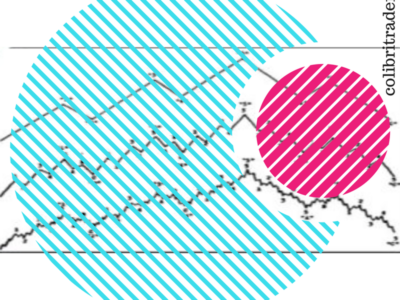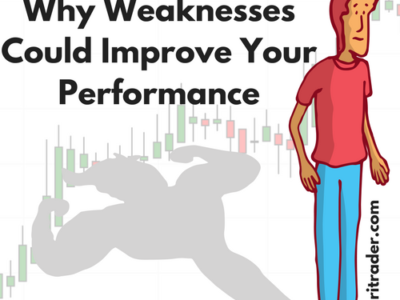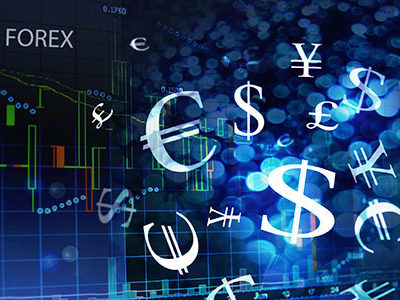The Seven Deadly Sins of Financial Trading – Gluttony
Greed. Envy. Gluttony. Sloth. Wrath. Lust. Pride… the seven deadly sins. According to ethics, these are the transgressions standing in the way of spiritual progress and purity. In reality though the seven deadly sins represent the dangers of both excess and defect which in modern times can be applied to virtually every aspect of life.
These cardinal vices often play out in the financial markets, leading traders to spiritual ruin or even bankruptcy. For this reason, it’s important to understand how these sins impact our trading behavior. It’s even more critical to identify the root causes of these transgressions so that we can replace them with virtues.
In this series, we take a look at the seven deadly sins of financial trading and how you can overcome them to improve your trading mindset.
Gluttony refers to overindulgence and overconsumption but in the financial markets gluttony often rears its ugly head in the form of overtrading.
Overtrading is the excessive buying and selling of securities in order to compensate for losing positions or to generate more earnings and it’s extremely common amongst new and inexperienced traders, it also appears in portfolios that have generated weak or inconsistent earnings.
There is no “one-size-fits-all” rule to quantify how many trades you should commit to on a daily, weekly or monthly basis. How much you trade will depend on your specific style or system. For example, scalping usually requires a lot of trades, whilst position trading usually entails more selective criteria. Each trading style has its own unique advantages and disadvantages, and success may depend on how well the strategy aligns with the trader’s goals, behavior and personality.
Traders who buy and sell securities excessively may be less organized and more prone to making mistakes. Overindulgence of this magnitude also suggests that they lack specific goals or aren’t sticking to their trading strategy. Overtrading also leads traders toward speculation and herd mentality, both of which may lead to ruin.
Herd behavior is one of the telltale sign that you are overtrading. Rather than relying on technical and fundamental analysis, you are instead looking at what the herd is doing and copying their position. This is exactly how bubbles are formed, and why they eventually burst.
Herd behavior is easy to understand because we’ve all done it. There’s a strong human tendency to conform to the crowd. The desire to behave and look like everyone else is a powerful force that may have had an evolutionary advantage, but has no real place in the financial markets. Since the herd has a lot of opinions about many different things, you’ll quickly find yourself entering into trades or assuming positions you haven’t studied or simply don’t understand and get swept up in a whirlwind. If you don’t know why a particular trade is a good idea, you’ll have a much harder time knowing how to evaluate it. By the time you do, it’s probably already too late.
But there’s another motivation for following the herd. It’s common to believe that a large group of people are more likely to be right about something. We see this frequently on our social media networks and are often guilty of jumping into a debate or cause that we know little about simply because our friends do it. However, the herd is often wrong, and anyone who takes advice from this group may end up margining out. Maybe not the first or second time, but eventually, herd mentality comes back to bite you in a really bad way.
The herd are the same people who let greed dictate their trading behavior. They were responsible for the dot-com bubble, not to mention the various other speculative bubbles that have led to market crashes and recessions.
To understand whether you’ve been overtrading, ask yourself if you’re employing an effective trading strategy. Also reflect on your emotional state while trading. After all, the most amazing strategy in the world won’t help you if you let your emotions guide you. Do you have a nagging feeling of always needing to be in the market? That’s another sign of overtrading. Obviously if you’re looking to the herd for clues about your next move, it might be time to step away from the screen for a little while.
The good news is that it’s relatively easy to solve overindulgence. You simply take a break and reflect on your goals and overall trading strategy. It actually requires less “doing” and more critical self-reflection. This is really the only way you can avoid committing the deadly sin of gluttony.
TAKEAWAYS
- Don’t get swept up in the herd
- Reflect upon your trading plan and strategy
- Take a break for an hour and continue when you are refreshed
Are you a gluttonous trader? Tweet us @easymarkets and let us know, alternatively contact our support team for assistance.
The post The Seven Deadly Sins of Financial Trading – Gluttony appeared first on Forex.Info.
Source:: The Seven Deadly Sins of Financial Trading – Gluttony














